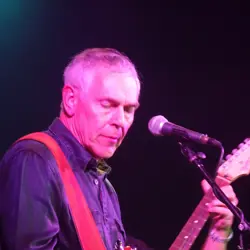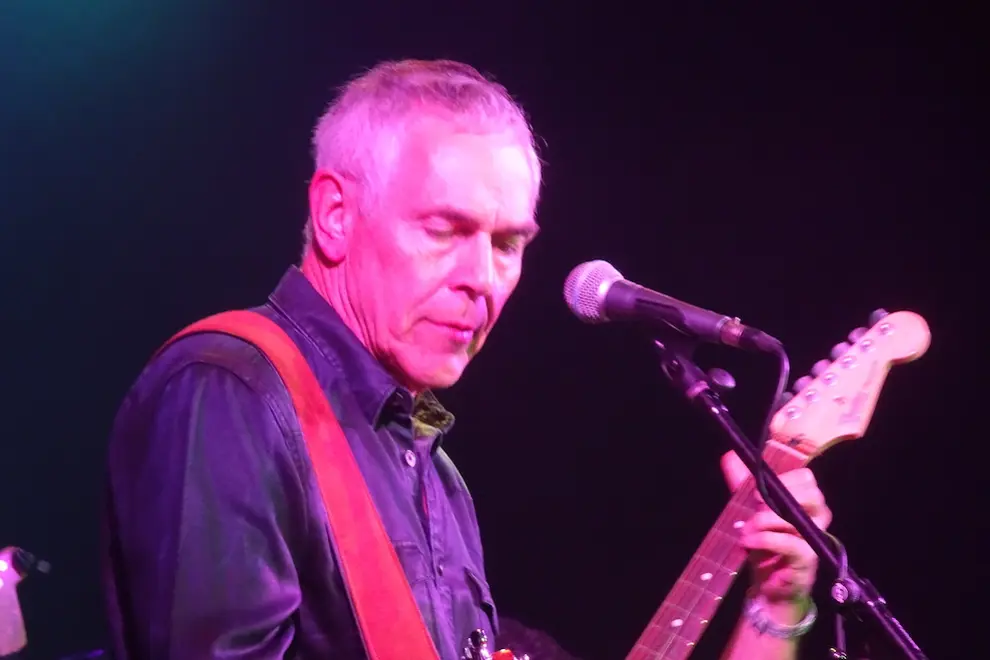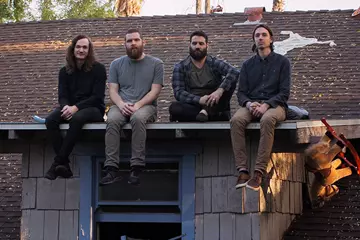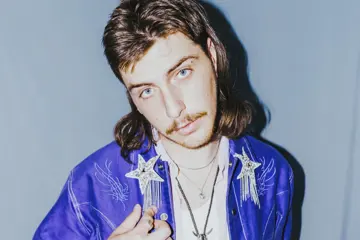 Beeb Birtles
Beeb BirtlesThe feud between the current all-American Little River Band and original all-Australian is again set to be played out in court.
According to the Melbourne edition of the Sunday Herald Sun, Stephen Housden and Wayne Nelson filed suit in the Victorian Supreme Court on August 10, against founder guitarist and songwriter Graeham Goble and his company Days On The Road Pty Ltd.
Housden was brought in by Little River Band to play guitar in 1981, and legally took over their name and logo when all the original members left. He continued to perform with the American lineup – playing 80 concerts a year, mostly in the US – and re-recorded Little River Band’s earlier material. As of 2017, he was said to have moved to Ireland and remained involved in Little River Band’s management and social media.
American bassist/singer Wayne Nelson also joined in the 1980s and did vocal duties in Housden’s Little River Band.
At issue in the latest court case are claims of unpaid royalties from tracks released through two American-based record companies. These are from Time Exposure, Greatest Hits Volume 1, The Net, Playing To Win and No Reins from the band’s Capitol Records days; and Monsoon, Too Late to Load, Get Lucky and Worldwide Love issued on MCA Records.
According to the Sunday Herald-Sun, Housden and Nelson are claiming in court documents that Goble and Days On The Road Pty Ltd received royalties but had not passed it on to them since January 1, 2016. “The case, still in its early stages, returns to court at a later date,” the paper reported.
This previous legal biffos were over the use of the Little River Band or LRB names.
Don't miss a beat with our FREE daily newsletter
Coincidentally, this lawsuit came just months after Goble vented in Classic Rock about how unfair it was that the original members who formed Little River Band in Melbourne in 1975 could no longer use the name. "We were a faceless band in many ways," Goble said. "Nobody knew who we were individually. So that's given rise to this all-American band walking out onstage and touring the States under the name Little River Band with no original members playing our repertoire. For the most part, people buying tickets are not realizing they're not seeing the original people who wrote and recorded all the songs.”
At Loose End
In late 1974, Goble, Beeb Birtles, Glenn Shorrock and drummer Derek Pellicci were in London at a loose end after their various bands – Zoot, Twilights, Axiom and Mississippi – dismally failed to crack the UK market after enjoying chart success in Australia. They met up with Glenn Wheatley, whose band The Masters Apprentices – in which he played bass – also collapsed in London. Wheatley had since become involved in companies that managed David Bowie and The New Seekers. They decided to convene in Melbourne and put together a new outfit with controls set to the soft-pop heart of American FM radio.
The strategy worked. In America they had eight Top 10 hits in a row. Radio stormed over Reminiscing, The Night Owls, Home On A Monday, Curiosity Killed The Cat, It’s A Long Way There, Help Is On Its Way, Emma, Cool Change and Happy Anniversary.
Little River Band were first to break America while still based in Australia, and Sleeper Catcher (1978) was the first Australian-made LP to sell a million copies Stateside. But there were always personality problems within the ranks. When they travelled, there were two buses – one for the Christians and one for the toking party animals. In the studio, some would record their parts individually to cut down on friction.
Up to 38 members passed through the Little River Band’s revolving door, including John Farnham and Cold Chisel’s Steve Prestwich. By the ‘90s when record sales dropped, the original lineup from had become bored with Little River Band and moved on. Birtles quit in 1983, Goble in 1989, Shorrock in 1982 and again in 1991, and Pellici in 1997. Wheatley was too busy with the phenomenal careers of John Farnham and Delta Goodrem.
Heritage Market
The Little River Band episode is a wake-up call to many major Australian acts, not only about the need to trademark their names (which an astonishing number of artists haven’t done) but to also keep it in perpetuity in case circumstances change.
The advent of streaming brought “heritage rock” back in focus, with catalogue sales making up 82.1 percent of total streaming and digital/physical sales last year. There is a huge live market for heritage acts especially in America. Last year alone, deep diving into their past hits were Chicago, Journey and Backstreet Boys, with the top end including Elton John (grossing $201.8 million), The Rolling Stones ($179.3 million), Paul McCartney ($105.1 million) and The Eagles ($85.1 million).
US radio’s love affair with Little River Band songs remains. Goble’s songs, for instance, have been played 12 million times. Five were spun a million times each. Reminiscing, peaking at #3 in America in 1978, received an award as late as 2020 for five million spins.
Birtles, Shorrock, Goble reunited in 2001 under that name, after Warner Music expressed in producing a long form video concert like The Eagles' Hell Freezes Over. The three played shows in Australia and were then offered an American tour with Chicago and a special on the VH1 music channel. They planned to bill themselves as BSG The Founding Members Of Little River Band. Housden took legal action, with the original case insisting they not mention Little River Band in any marketing. This was resolved out of court in 2005.
Losing the rights to their name has had a number of serious consequences. Spotify and Apple Music separate the original Australian Little River Band’s catalogue from the American one.
Goble told Classic Rock: "The main thing that pisses us off is that when you go on to Spotify and you click on one of our iconic hits, their photo comes up. We've tried through our record companies, through legal channels, to force Spotify to give us a separate page. They won't do it, and it's so disappointing. We feel like we've got parasites on our back all the time. There’s like 25 versions of The Night Owls on Spotify, and 24 of them are by a band using our name that are not original members, and Spotify are being complicit in allowing this deception to occur and they won't do anything about it.”
In 2021, the Australian Federal Court blocked Victor Marshall, head of Adelaide label The Grape Organisation – “the largest online museum resource dedicated to… The Original Australian Little River Band and its individual members”— from interfering in the current Little River Band’s deals with streaming services.
Marshall previously maintained that confusion over the name meant “Little River Band [have] been overlooked for several public acknowledgments such as the Adelaide council naming laneways after Adelaide musicians and a star on the Adelaide Festival Centre’s Walk of Fame.”
Birtles’ annoyance stems from the fact Wheatley presumably assigned his stake on his behalf. In his memoirs Every Day Of My Life, he wrote, "I still have that release form today without my signature on it."
They've vented their frustrations in song: Goble's Someone's Taken Our History in 2005, Birtles' Revolving Door in 2012 and Shorrock's Hear My Voice in 2016.
















